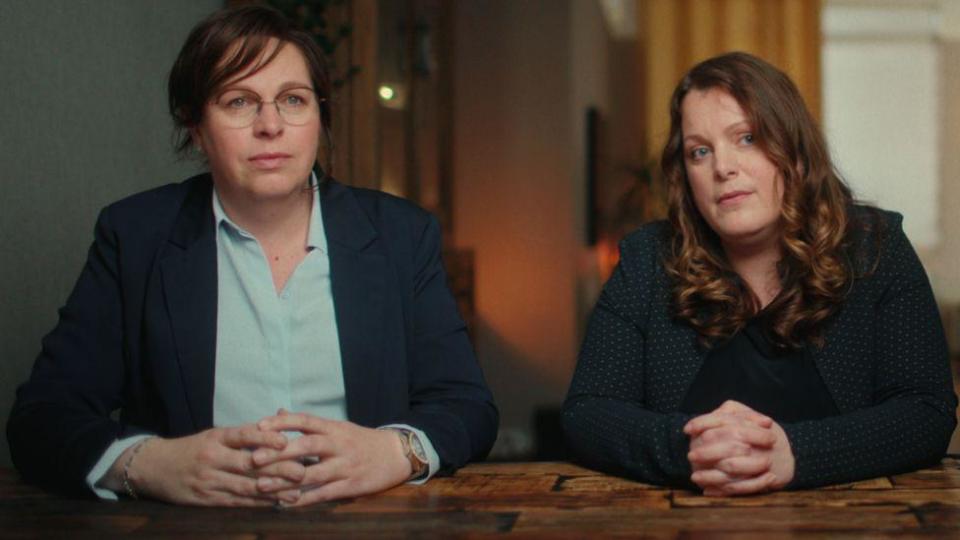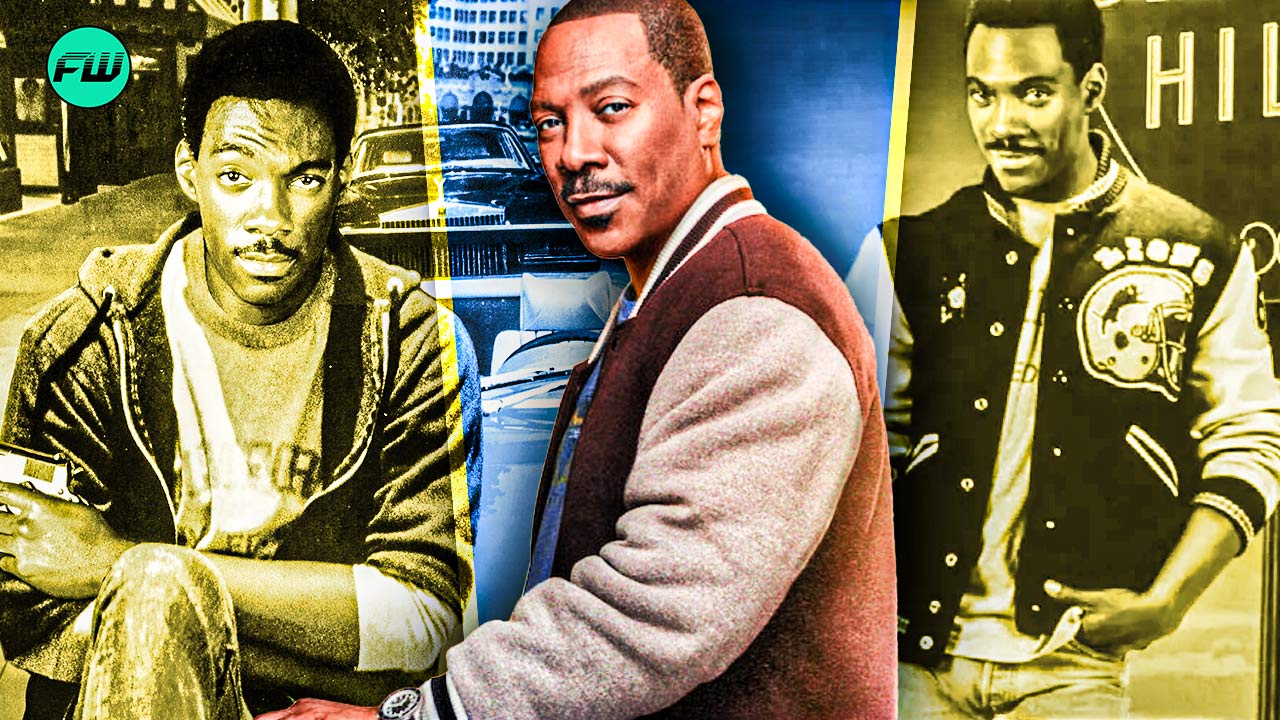Sperm donor: Netflix series is misleading

A Dutch sperm donor who is the father of hundreds of children has described a new documentary about him as “misleading”.
A Netflix docuseries released on Wednesday focuses on the women who conceived children using Jonathan Jacob Meijer’s sperm.
One woman said she felt “betrayed, sad and angry” after finding out how many more children Meijer had fathered.
But Meijer told the BBC that the documentary was misleading because it gave priority to the unfortunate rather than to the many families who he said were grateful to him.
Responding to the interview, the show’s executive producer called the claim that the majority of families are happy “completely untrue.”
In the interview, Meijer also said that he sees “absolutely nothing wrong” with being a father to hundreds of children.
The 43-year-old declined an interview for the Netflix documentary, but spoke to BBC Radio 4’s “Woman’s Hour” on Wednesday.
“They deliberately called (the documentary) ‘The Man with 1,000 Children,’ when it should really be called ‘The Sperm Donor Who Helped Families with 550 Children Have Children,'” he said on the show.
“So they are deliberately deceiving and misleading right from the start.”
He continued: “I think Netflix did a great job of selecting five (unhappy) families out of the 225 families I helped, and I’m sure they (the other families) will tell you something different.”
Netflix told Woman’s Hour that it would not comment on Meijer’s interview, but Natalie Hill, the documentary’s executive producer, spoke to the program.
“I have spent the last four years talking to families affected by Jonathan’s lies. I have personally spoken to 45 or 50 families,” she said.
“Fifty families have submitted statements to the court about his lies and asked the judge to stop. So the fact that Jonathan continues to have the opportunity to talk about the fact that it is a handful of women is completely untrue.”


Meijer has been a donor for 17 years. In many cases he donated privately, meaning he negotiated directly with the families and not through a private clinic.
Some women who chose him as a donor say he did not make it clear to them how many other children he had fathered.
“I’m torn because he told me at the time he would donate to five families,” one mother, Natalie, told Woman’s Hour.
“As it turns out, I read an article in a newspaper in 2021 that involved hundreds of families. That’s why I’m torn and don’t agree with his methods.”
Some women he donated to called him a “narcissist,” while others said he was a public health threat.
When asked if he thought his estimate of 550 children was a lot, Meijer said: “For a normal man that is a lot, but for a sperm donor it is not.”
“This is completely normal for a sperm donor. We’re talking about hundreds of children. They (the clinics) send the donor sperm to several countries.”
“Outdated views”
The documentary series received extensive coverage before its release.
Vicky Jessup of the Evening Standard described the novel in a four-star review as “a blood-curdling story: a cautionary tale of the dangers of modern times.”
“The film is undoubtedly fascinating, albeit in a very dark way – and the revelations about sperm donation (and Meijers’ practices) are horrifying.”
Some women express concern that their child may unknowingly meet a half-sibling and enter into a relationship with him or her in the future.
Mother Natalie said: “The biggest concern is that these children will meet each other and fall in love because they see something in each other and are not aware that they have the same donor father.”
“I think that’s the biggest risk because he talks about being an open and known donor, but he has donated to numerous clinics around the world and not all clinics share the same values when it comes to openness and honesty with children.”
Meijer rejected this suggestion, telling presenter Nuala McGovern that the concerns were based on cases in which anonymous donors had been used, while his identity was easily ascertained.
“I can guarantee you there are cheap DNA tests now and I’m in the DNA database, so they can find out,” he said.
“Also, the parents will tell their children that they are donor descended. So, since they all know my identity, even if they were to meet by chance, they can simply ask, ‘Are you a donor child?’ and secondly, ‘Is your donor father Jonathan?’
“We should stop projecting these outdated views onto these children. They are very aware that they are donor children. They know how to react.”
process
Meijer was banned from donating sperm in the Netherlands in 2017 after it was discovered that he was the father of 102 children born from donations at 11 clinics across the country.
He continued to donate in other countries until 2023, when a woman and a foundation supporting her filed a civil lawsuit against Meijer, alleging that he was increasing the risk of incest for his children.
In his testimony, Meijer admitted to having between 550 and 600 children. However, the court said he could have fathered up to 1,000 children spread across several continents.
The judge eventually banned Meijer from donating sperm to young parents and threatened him with a fine of 100,000 euros (85,000 pounds) per donation if he did so.
Meijer told Woman’s Hour: “I stopped donating to new recipients back in 2019. I only donated to siblings. The court case was basically useless because I had already stopped and the court case did not prohibit me from helping existing families.”
When asked if he saw a problem with his approach, Meijer said: “I see absolutely nothing wrong with it. I think it’s very good. I see that they have a lot of friends and meet up.”
“And I can’t speak for them, but from what I’ve heard, they’re very happy that they have so many siblings. Because they (the half-siblings) meet on donor days, they meet and go on vacation together.”
On his reasons for becoming a sperm donor, Meijer said: “The misconception is that I had some kind of plan. I was in college and had a friend who was infertile.
“It made a big impression on me because I saw the impact it had on his life. So I became interested in it… and I started thinking about being a donor.”
When McGovern asked if Meijer understood how the women felt, he said, “Why should they feel uncomfortable? It’s their own decision.”
“If you want exclusivity, you go to the clinic, pay 10,000 euros and then your donor is exclusive. If you as a mother don’t want to share, why did you choose this path?”
Hill told Woman’s Hour: “The documentary series, which we spent a lot of time producing and carefully researched, contains commentary and research from numerous families from all over the world. And to say he knows all of these families and they are all happy is not true.”
“In the series you can see how Jonathan was able to lie despite the lack of legal framework and transparency in fertility issues overall. And the consequences for the families are really well highlighted in the documentary series.”
The British Human Fertilisation and Embryology Authority (HFEA) said in a statement that the Netflix series could be “stressful and upsetting for the families of some children conceived through sperm donation”.
Speaking to Radio 4, Rachel Cutting, HFEA’s compliance and information director, added: “Fertility treatment is strictly regulated in the UK, which is not always the case around the world… In the UK there is a cap of ten families.”
“But donors may also donate outside the UK. So while we have control in the UK, the HFEA has no jurisdiction outside the UK, including what happens to private donations. That’s why we encourage women to go to a licensed HFEA clinic.”



